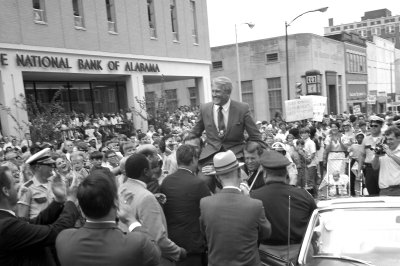Topic: Samuel Taylor Coleridge
Quotes
Advice is like snow; the softer it falls, the longer it dwells upon, and the deeper it sinks into the mind
The almanac Apr 09, 2009
Advice is like snow; the softer it falls, the longer it dwells upon, and the deeper it sinks into the mind
The almanac Apr 09, 2008
Advice is like snow; the softer it falls, the longer it dwells upon, and the deeper it sinks into the mind
The Almanac Apr 09, 2007
Advice is like snow; the softer it falls, the longer it dwells upon, and the deeper it sinks into the mind
The Almanac Apr 09, 2006
Advice is like snow; the softer it falls, the longer it dwells upon, and the deeper it sinks into the mind
The Almanac Apr 09, 2005
Samuel Taylor Coleridge ( /ˈkoʊlrɪdʒ/; 21 October 1772 – 25 July 1834) was an English poet, Romantic, literary critic and philosopher who, with his friend William Wordsworth, was a founder of the Romantic Movement in England and a member of the Lake Poets. He is probably best known for his poems The Rime of the Ancient Mariner and Kubla Khan, as well as for his major prose work Biographia Literaria. His critical work, especially on Shakespeare, was highly influential, and he helped introduce German idealist philosophy to English-speaking culture. He coined many familiar words and phrases, including the celebrated suspension of disbelief. He was a major influence, via Emerson, on American transcendentalism.
Throughout his adult life, Coleridge suffered from crippling bouts of anxiety and depression; it has been speculated that he suffered from bipolar disorder, a mental disorder which was unknown during his life. Coleridge chose to treat these episodes with opium, becoming an addict in the process. This addiction would affect him in the future.
Coleridge was born on 21 October 1772 in the country town of Ottery St Mary, Devon, England. Samuel's father, the Reverend John Coleridge (1718–1781), was a well-respected vicar of the parish and headmaster of Henry VIII's Free Grammar School at Ottery. He had three children by his first wife. Samuel was the youngest of ten by Reverend Coleridge's second wife, Anne Bowden (1726–1809).Coleridge suggests that he "took no pleasure in boyish sports" but instead read "incessantly" and played by himself. After John Coleridge died in 1781, the then 8-year-old Samuel was sent to Christ's Hospital, a charity school founded in the 16th century in Greyfriars, London, where he remained throughout his childhood, studying and writing poetry. At that school Coleridge became friends with Charles Lamb, a schoolmate, and studied the works of Virgil and William Lisle Bowles. In one of a series of autobiographical letters written to Thomas Poole, Coleridge wrote: "At six years old I remember to have read Belisarius, Robinson Crusoe, and Philip Quarll – and then I found the Arabian Nights' Entertainments – one tale of which (the tale of a man who was compelled to seek for a pure virgin) made so deep an impression on me (I had read it in the evening while my mother was mending stockings) that I was haunted by spectres whenever I was in the dark – and I distinctly remember the anxious and fearful eagerness with which I used to watch the window in which the books lay – and whenever the sun lay upon them, I would seize it, carry it by the wall, and bask, and read."
It uses material from the Wikipedia article "Samuel Taylor Coleridge."







